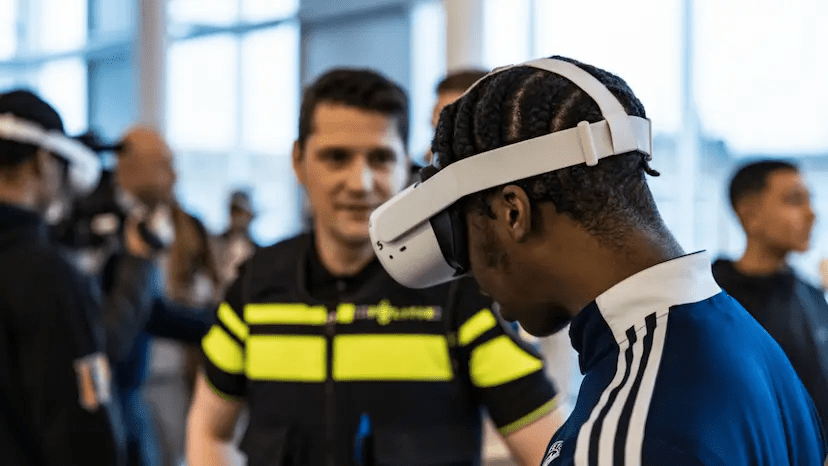Month: May 2023
Teaching young people in Rotterdam to say ‘no’ to easy drug money
First piloted in schools in Rotterdam-Charlois, the ‘Coco’ (Cocaine Collectors) project seeks to teach young people how to say ‘no’ to easy drug money. One of its most original features is that it uses virtual reality to show them what ‘recruiters’ will do to draw them into working in the drug trade.
For Rotterdam, Europe’s leading port of entry for cocaine shipped from South America, teaching the young how to resist being dragged into this trade is a key part of their overall drug prevention policy. The municipality of Rotterdam and the police hope that in this way young people will learn to recognise the false promise of ‘making quick money’.
According to the Centre against Child Trafficking and Human Trafficking (CKM), the number of victims of criminal exploitation is increasing in Rotterdam. So-called ‘extractors’ in particular pose a major problem. These are young people who empty for a fee the containers full of drugs aimed at being sold in the streets. Dozens of ‘extractors’ arrested in recent years come from Charlois. Furthermore, they are being recruited at an increasingly young age: a 14 year-old boy was arrested earlier this year.
Realistic and intense
Young people with VR headsets crisscross the auditorium of De Hef vocational college. A boy puts his hands in the air when he is (virtually) arrested. Young people can make different choices in the VR experience. If they come into contact with dangerous recruiters, they really can’t go back. “I was standing in a square with friends. A man in an expensive car asked me if I wanted to earn money quickly and easily. He showed me a lot of money,” says a student. “Suddenly, as I was in the street, I was pressured with a firearm. Someone standing in front of you with a gun is quite something. It was very realistic. Although I already knew that making money quickly is a bad choice, I can now put myself in the shoes of victims who are recruited by criminals.”
Resistance to crime
After the VR experience, there is room during the three-hour lesson programme to share experiences and feelings. The project is a collaboration between the municipality of Rotterdam, the police, Stichting Jongerenwerk Op Zuid (JOZ), Bureau Sketch, NPRZ, Stichting Citysteward and the schools involved. “Everyone is doing everything they can to keep our young Rotterdam residents from living in crime. With a good analysis after the test, we can also offer this teaching programme to other schools,” said the Uithalers’ Problem project leader, Faye van der Plas de Haan.
The port and the city
The recruitment of young people into the drug trade, although directly linked to criminal activity in the port, affects the nearby city of Rotterdam. Indeed, youngsters are recruited in the city’s residential areas, notably near schools, and via social media. Once they are recruited, they are ruthlessly monitored, and consequences can be dire if they fail in their ‘job’ of emptying containers from drugs destined for the street market. In the words of a police officer, Reinier de Groen, “Reprisals affect not only one youngster and his family, but their entire environment. Think explosions and shootings at night and also in broad daylight”.
The ‘Coco’ training programme is one of the many actions implemented in Rotterdam to counter drug trafficking. “We try to disrupt the process as early as possible and on as many fronts as possible,”’ adds Reinier.

Young people test the VR glasses project ‘Coco’ (Cocaine Collectors).
Photo: Rotterdam police

Newsletter 7- Urban Security updates
Read the 7th Newsletter to stay up to date with the IcaRUS project progress:
- Stakeholder Participation: an overview of tool validation workshops that will take place in Lisbon, Nice, Riga, Rotterdam, Stuttgart, and Turin with their civil society partners.
- A Critical Analysis of International and National Legal Frameworks for Urban Security Policies
- The outcomes of IcaRUS two first sessions in its series of web conferences:
- How to integrate gender into urban security policies?
- How can the Design Thinking methodology contribute to a more strategic approach to urban security?
Enjoy!

subscribe to be the first to receive icarus news!
Know what we've been up to and the latest on the European urban security frame.









